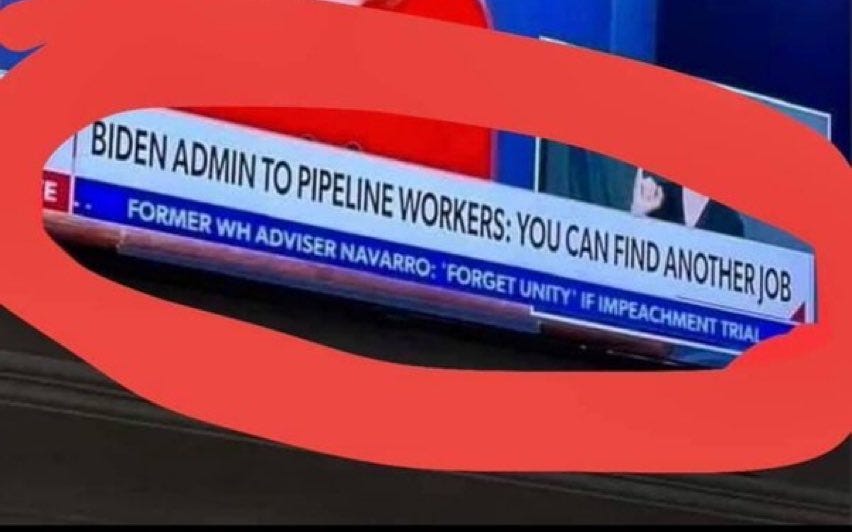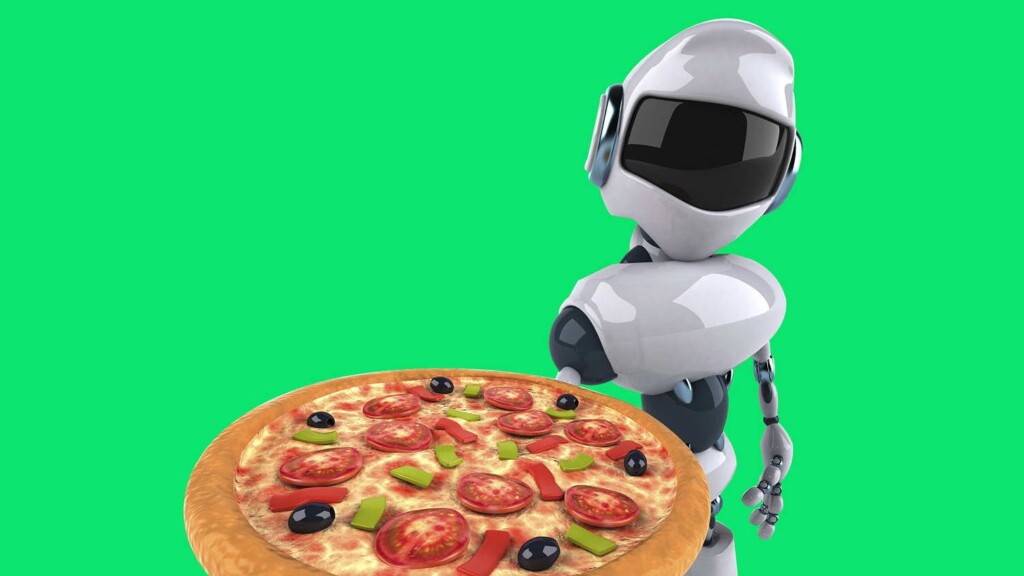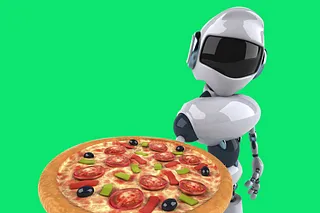Existence, faculties, assimilation—in other words, personality, liberty, property—this is man.
It is of these three things that it may be said, apart from all demagogic subtlety, that they are anterior and superior to all human legislation.
It is not because men have made laws, that personality, liberty, and property exist. On the contrary, it is because personality, liberty, and property exist beforehand, that men make law1
– Frédéric Bastiat, The Law
[Author Note: This article was originally part of a larger Chapter in Herd Immunity: Societal Deprogramming, titled, “Never Have A Career That Relies on the Kindness of Strangers.”]
While none of us can control a worldwide Pandemic (unless the CEO of Pfizer or Tony Fauci is reading this), we also can’t control government legislation. Sure, we can decide to move to a state or a country that has better wages, a better cost of living, or a less-intrusive government, but many people could still lose their service-industry job or gig due to legislation. In Herd Immunity: Societal Deprogramming, I discuss how many managers, chefs, and restauranteurs can lose their passion for the industry after years or decades of working in it. For the sake of this article, let’s assume that it’s your path to be a world-class restauranteur. You could still lose control of your business or your livelihood due to a worldwide Pandemic and government intervention. By August 2020, Michigan ranked seventh in permanent restaurant closings, behind California, Texas, New York, Florida, Illinois, and Pennsylvania.2 As you can see, this didn’t just affect blue or Democrat states. The food service industry, and the gig economy that depends on it, are not recession, depression, or Pandemic-proof. You might have the passion and the acumen to be the greatest restauranteur in your area, but you also might wake up one day and be forced to lay off your entire staff or shutter your family business that’s been around for generations.
During that same time in 2020, rideshare companies such as Uber and Lyft, and food delivery companies such as DoorDash threatened to leave California due to California Assembly Bill 5 (AB5), which was passed into California State Legislature by Governor Gavin Newsom in 2019.3 In 2019 Uber and Lyft threatened to suspend operations and leave California by September 2020, if Proposition 22 didn’t pass in the November 2020 election cycle.4 Under Proposition 22, rideshare and delivery drivers maintain their independent contractor (1099) status. California enacted AB2257, a statute to amend AB5, a law that was effective January 1, 2020. AB2257’s changes to the bona fide business-to-business exception may help in limited circumstances but doesn’t provide any benefit to many independent professionals or businesses that seek to engage with them.5 If DoorDash, Uber, and Lyft were forced to make everyone W-2 employees, it would mean fewer people could work on the platforms (supply and demand) because they would be forced to give full-time employees health benefits. They would also be forced to standardize wages, paying every driver a flat weekly rate, instead of varied earnings based on miles or time. It would kill the platforms.
People choose to work for these platforms for a variety of reasons: some do it as a part-time hustle, some decide their hours, and some do it full-time. Many people would be forced out of this space if this legislation were to pass in California. Not to mention if it happened nationally or internationally. I’m not writing this to stir up sympathy for your poor food-delivery driver. Many people take these gigs because the promise of “being your own boss” sounds alluring for service industry workers who hate going to a job at a particular time or being forced to talk with customers all day. While it’s true that these platforms promise some semblance of autonomy, how much autonomy do you have if you live in a state that can limit your production with one piece of legislature? You don’t have to work in the gig economy to be legislated out of a job. Look at how the Biden administration treated oil and gas pipeline workers. In the Biden family, it’s oil pipes—no; crack pipes—debatable! I know we’re not supposed to make fun of the mentally-infirmed but I couldn’t help myself.

Another major problem that is separating the wheat from the chaff in the service industry is automation. If we ignore the COVID-19 Pandemic that forced many industries to limit seating, limit indoor service, or force many eateries to shutter their doors, automation, and disinterested service will be the harbinger for many service industry jobs and careers. Many fast-food eateries and coffee shops have begun toying with full-service kiosks, where the customer can place their order without ever having to interface with a human. In many states, where disgruntled and aggrieved food service workers are clamoring for a $15/hour minimum wage, management is seeking ways to limit its overhead by replacing much of its workforce with automation. In an article for Hackaday, Lewin Day discusses some of the robotics and automation that has occurred in fast food:
In their efforts to improve efficiency, White Castle has taken the bold step of installing a robotic burger flipper, imaginatively named Flippy. Built by Miso Robotics, the robot hangs from a ceiling rail to minimize the space taken up in the kitchen area. Based on a Fanuc robot arm, the system uses artificial intelligence to manage kitchen resources, Flippy is capable of managing both the grill and fryers together to ensure fries don’t get cold while the burgers are still cooking, for example.6
This isn’t limited to flipping burgers either:
Domino’s is one of the largest pizza companies in the world, and thus far have focused their efforts on autonomous delivery. The DRU, or Domino’s Robotic Unit, was launched to much fanfare, promising to deliver pizzas by a small wheeled robotic unit. Equipped with sensors to avoid obstacles and GPS navigation, the project has not yet entered mainstream service. However, between this and the multitude of companies exploring drone delivery, expect to see this become more of a thing in coming years.7
Day concludes his article by showcasing the strengths of robots and automation in the fast food industry and the food delivery industry as well:
Robots in the fast-food kitchen stand to reduce or eliminate tedious, repetitive work. Robots don’t get sick, and less human labor means fewer rostering hassles. It seems to be a foregone conclusion that more automation is on the way, and while some startups may falter, others will surely succeed. Your next meal may just yet be entirely prepared by a robot, even if it’s still delivered by a tired grad student on a moped. Come what may!8

Automation solves many issues of the modern-era wage slave, including a disinterested workforce while systematizing creation and delivery. However, this also means that many “first jobs” are disappearing. I’m not suggesting being a food service manager is everyone’s life’s calling, but many teenagers still need jobs or to learn a trade in their high school or college years. Not everyone can trade crypto and sell foot pics. The service industry has always been great for this. It’ll be interesting to see what food service looks like in the next decade. I’m certain there will always be a need for servers, bartenders, and baristas, assuming you do not live in a state or country that arbitrarily and capriciously locks down its citizens every winter for a seasonal virus.
The solution to this is simple: view gig and service-industry work for a short time, part-time, or in-between jobs. I love this industry and gave it many years of my blood, sweat, and tears. The COVID-19 Pandemic changed the industry, and as much love as I have for my servers, bartenders, delivery drivers, and other service workers, one day you might be legislated out of a job. If your in-demand skillset is limited to making Manhattans and pouring lattes, you’ll have a rough go of it in the coming years. Rather than having a career that is reliant on the kindness of strangers, build your skill set and be a freelancer, contractor, or remote worker. Learn skills that are needed in the Post-COVID society and learn to charge a premium for your skills.
1 Bastiat, Frédéric. 2013. The Law. Translated by Dean Russell. New York: Creative Commons, 2.
2 Michigan Capitol Confidential. 2020. “Michigan No. 7 In US In Permanent Restaurant Closures.” Mackinac Center for Public Policy. August 3, 2020. Accessed September 16, 2021. https://www.michigancapitolconfidential.com/michigan-no-7-in-us-in-permanent-restaurant-closures
3 State of California. California Assembly. Worker Status: Employees and Independent Contractors. AB-5. Chapter 296. 2019.
4 Conger, Kate. 2020. “Uber and Lyft Get Reprieve After Threatening to Shut Down.” New York Times. August 20, 2020. Accessed September 16, 2021. https://www.nytimes.com/2020/08/20/technology/uber-lyft- california-shutdown.html
5 MBO Partners. 2020. “What California’s AB2257 Means for Independent Contractors.” October 1, 2020. Accessed September 16, 2021. https://www.mbopartners.com/blog/misclassification-compliance/what-californias- ab2257-means-for-independent-contractors/
6 Day, Lewin. 2020. “The Ever-Accelerating Automation of Fast Food.” Hackaday. August 12, 2020. Accessed September 16, 2021. https://hackaday.com/2020/08/12/the-ever-accelerating-automation-of-fast-food/
7 Ibid.
8 Ibid.


